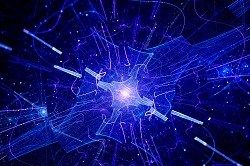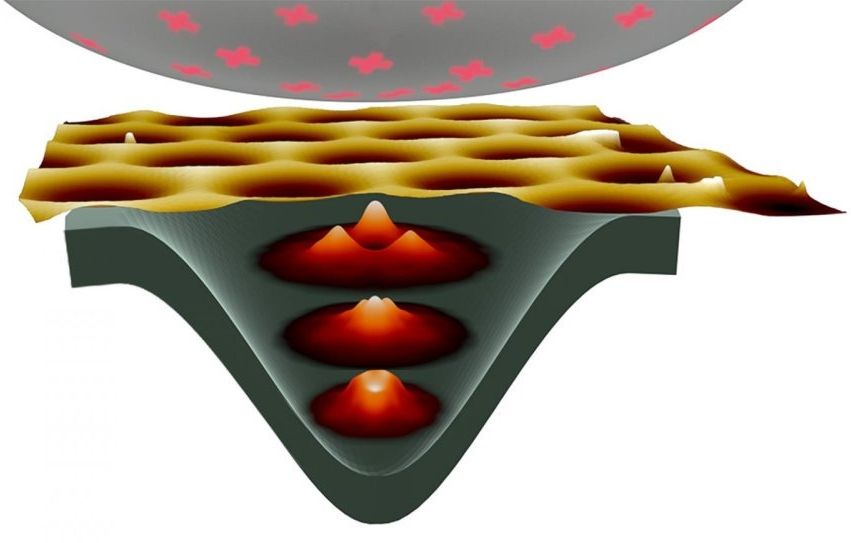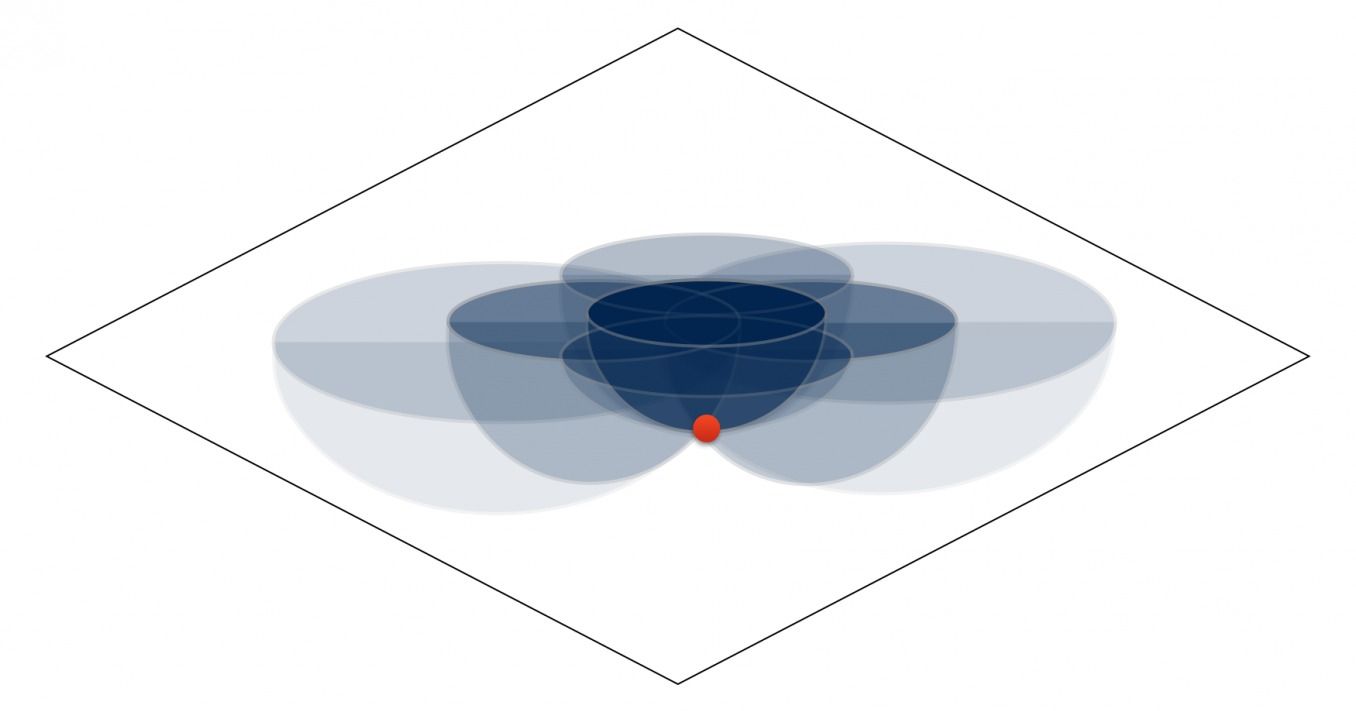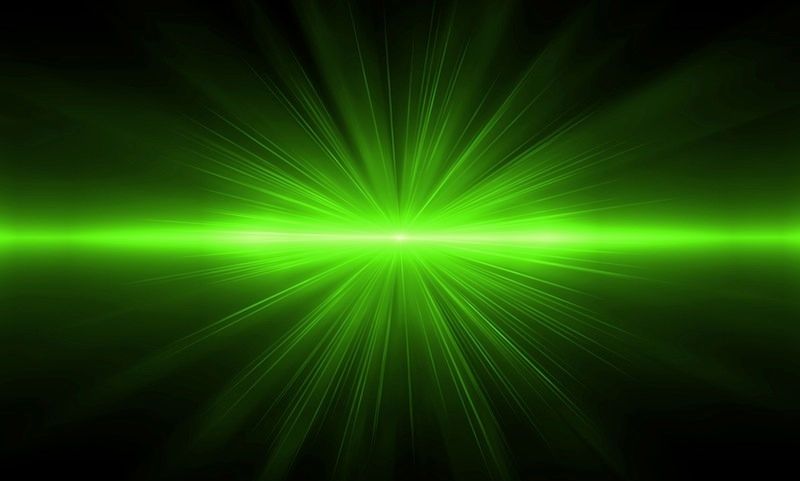Archive for the ‘quantum physics’ category: Page 782
Aug 22, 2016
Spin Nano-Systems Result in New Type of Quantum Bits
Posted by Karen Hurst in categories: computing, nanotechnology, quantum physics
Excellent progress.
The rapid progress that has been sweeping the field of crystal growth and related device technology is opening doors. Perhaps nowhere is the effect of this evolution being felt more than in the development of ultra-small structures whose material properties can be controlled on the nanoscale. The reason for this development: because solid-state nano–structures possess unique optical and electronic properties, they have the potential to be the launching pad of a new generation of devices.
Within the field, researchers are particularly focused on the properties of spins confined within the nano-structures – with the ultimate goal being to use spin nano-systems to develop, for example, robust quantum bits (qubits) capable of storing vast amounts of information. Here, the EU -funded S^3NANO project has successfully developed qubits in a new, innovative form. According to project researchers, these qubits could serve as the information units of the quantum computers of the future.
Continue reading “Spin Nano-Systems Result in New Type of Quantum Bits” »
Aug 22, 2016
Rice News Release: Light and matter merge in quantum coupling
Posted by Karen Hurst in category: quantum physics
By Newsroom America Feeds at 11:43 am Eastern
SUMMARY: Rice University physicists probe the boundaries of light-matter interactions as they bridge traditional condensed matter physics and cavity-based quantum optics.
Rice university office of public affairs / news & media relations.
Aug 22, 2016
‘Artificial atom’ created in graphene
Posted by Karen Hurst in categories: particle physics, quantum physics
When they are confined to a small space, the behavior of electrons can only be explained by quantum physics. Much like electrons in an atom, they are forced into discrete quantum states. These states can be used for quantum information technologies.
Aug 22, 2016
New theory could lead to new generation of energy friendly optoelectronics
Posted by Karen Hurst in categories: computing, mobile phones, particle physics, quantum physics
Researchers at Queen’s University Belfast and ETH Zurich, Switzerland, have created a new theoretical framework which could help physicists and device engineers design better optoelectronics, leading to less heat generation and power consumption in electronic devices which source, detect, and control light.
Speaking about the research, which enables scientists and engineers to quantify how transparent a 2D material is to an electrostatic field, Dr Elton Santos from the Atomistic Simulation Research Centre at Queen’s, said: “In our paper we have developed a theoretical framework that predicts and quantifies the degree of ‘transparency’ up to the limit of one-atom-thick, 2D materials, to an electrostatic field.
“Imagine we can change the transparency of a material just using an electric bias, e.g. get darker or brighter at will. What kind of implications would this have, for instance, in mobile phone technologies? This was the first question we asked ourselves. We realised that this would allow the microscopic control over the distribution of charged carriers in a bulk semiconductor (e.g. traditional Si microchips) in a nonlinear manner. This will help physicists and device engineers to design better quantum capacitors, an array of subatomic power storage components capable to keep high energy densities, for instance, in batteries, and vertical transistors, leading to next-generation optoelectronics with lower power consumption and dissipation of heat (cold devices), and better performance. In other words, smarter smart phones.”
Aug 19, 2016
How spacetime is built by quantum entanglement
Posted by Shailesh Prasad in categories: mathematics, quantum physics, space
A collaboration of physicists and a mathematician has made a significant step toward unifying general relativity and quantum mechanics by explaining how spacetime emerges from quantum entanglement in a more fundamental theory. The paper announcing the discovery by Hirosi Ooguri, a Principal Investigator at the University of Tokyo’s Kavli IPMU, with Caltech mathematician Matilde Marcolli and graduate students Jennifer Lin and Bogdan Stoica, will be published in Physical Review Letters as an Editors’ Suggestion “for the potential interest in the results presented and on the success of the paper in communicating its message, in particular to readers from other fields.”
Physicists and mathematicians have long sought a Theory of Everything (ToE) that unifies general relativity and quantum mechanics. General relativity explains gravity and large-scale phenomena such as the dynamics of stars and galaxies in the universe, while quantum mechanics explains microscopic phenomena from the subatomic to molecular scales.
The holographic principle is widely regarded as an essential feature of a successful Theory of Everything. The holographic principle states that gravity in a three-dimensional volume can be described by quantum mechanics on a two-dimensional surface surrounding the volume. In particular, the three dimensions of the volume should emerge from the two dimensions of the surface. However, understanding the precise mechanics for the emergence of the volume from the surface has been elusive.
Aug 19, 2016
Parallel Worlds Exist And Interact With Our World, Physicists Say
Posted by Karen Hurst in categories: cosmology, quantum physics

Quantum mechanics, though firmly tested, is so weird and anti-intuitive that famed physicist Richard Feynman once remarked, “I think I can safely say that nobody understands quantum mechanics.” Attempts to explain some of the bizarre consequences of quantum theory have led to some mind-bending ideas, such as the Copenhagen interpretation and the many-worlds interpretation.
Now there’s a new theory on the block, called the “many interacting worlds” hypothesis (MIW), and the idea is just as profound as it sounds. The theory suggests not only that parallel worlds exist, but that they interact with our world on the quantum level and are thus detectable. Though still speculative, the theory may help to finally explain some of the bizarre consequences inherent in quantum mechanics, reports RT.com.
Continue reading “Parallel Worlds Exist And Interact With Our World, Physicists Say” »
Aug 19, 2016
Long March 2D launches world’s first quantum communications satellite
Posted by Karen Hurst in categories: government, quantum physics, satellites
With this week’s overload of news flashes about the Quantum Satellite launch, I restrained from publishing too much repeat news on the launch. However, I came across an excellent article from NASAspaceflight.com that provides additional and good details about some of the initial “publically known” experiments that are to be conducted by the Chinese.
Of course, as with any government agency, not all information is shared.
https://www.nasaspaceflight.com/2016/08/long-march-2d-quantu…satellite/
Continue reading “Long March 2D launches world’s first quantum communications satellite” »
Aug 19, 2016
Quantum trick sees two things happen before and after each other
Posted by Karen Hurst in category: quantum physics
More of the bizarre Quantum Tricks.
By placing the order of two events into a quantum superposition, physicists have probed the nature of causality.
Aug 19, 2016
New Laser Created from Jellyfish’s Fluorescent Proteins
Posted by Karen Hurst in categories: computing, quantum physics
Another great example where scientists are bridging bio and technology together.
Fluorescent proteins from jellyfish that were grown in bacteria have been used to create a laser for the first time, according to a new study.
The breakthrough represents a major advance in so-called polariton lasers, the researchers said. These lasers have the potential to be far more efficient and compact than conventional ones and could open up research avenues in quantum physics and optical computing, the researchers said.
Continue reading “New Laser Created from Jellyfish’s Fluorescent Proteins” »
















